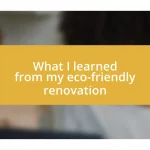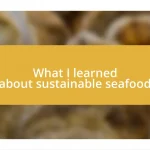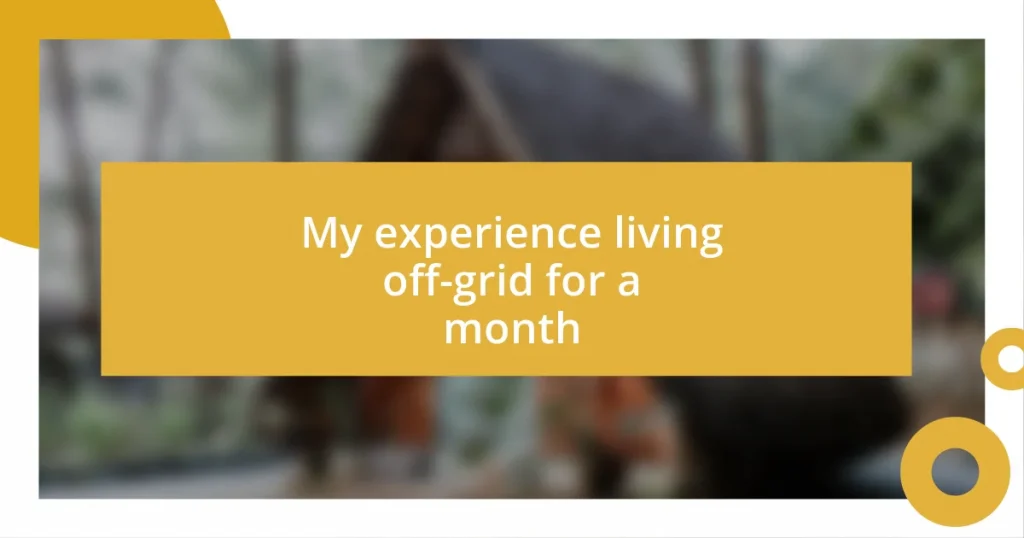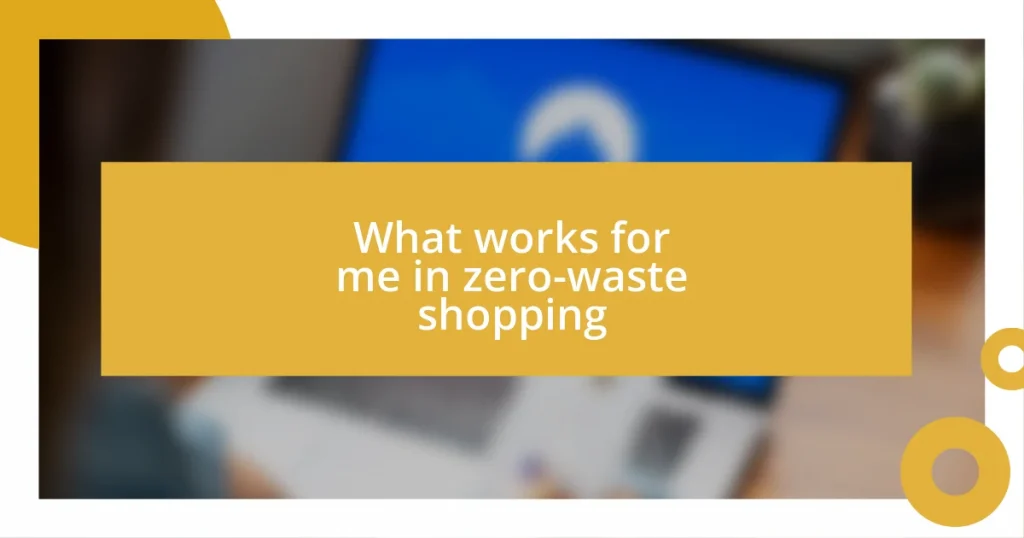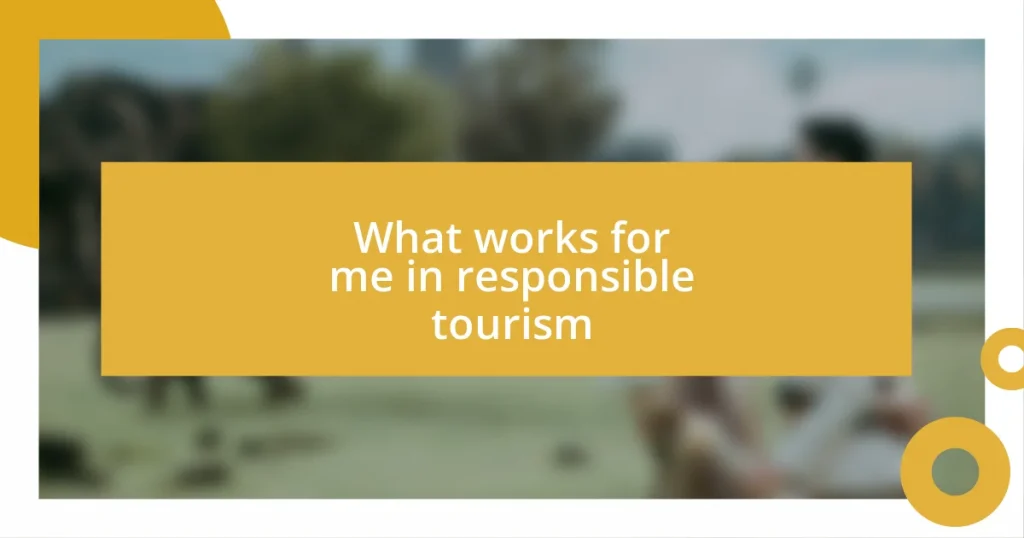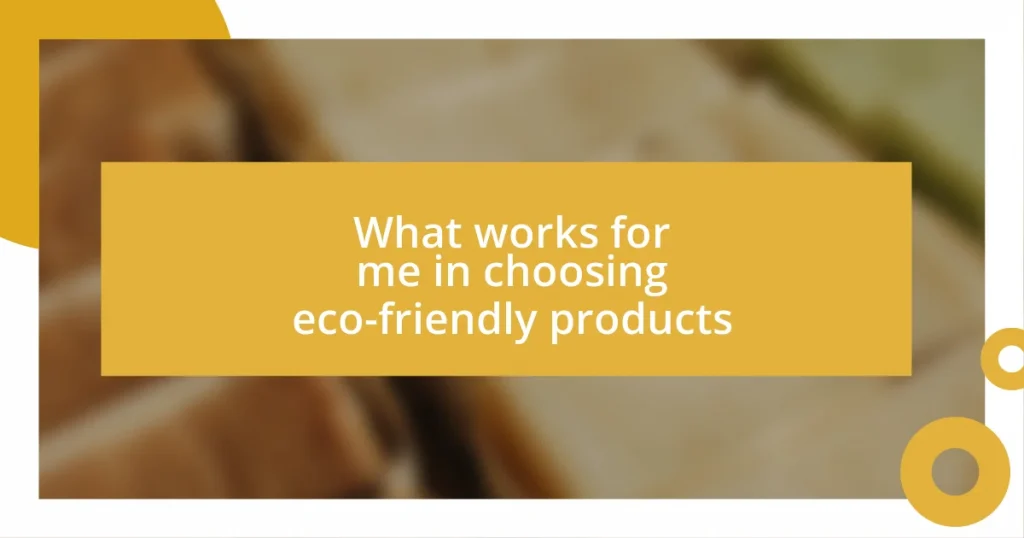Key takeaways:
- The experience of living off-grid fosters a deep connection to nature, self-reliance, and an appreciation for simple joys often overlooked in urban life.
- Essential survival skills, such as fire-starting, water purification, and food preservation, were crucial for navigating challenges and enhancing self-sufficiency.
- Overcoming obstacles like communication issues, waste management, and isolation led to personal growth and a profound sense of achievement during the off-grid journey.
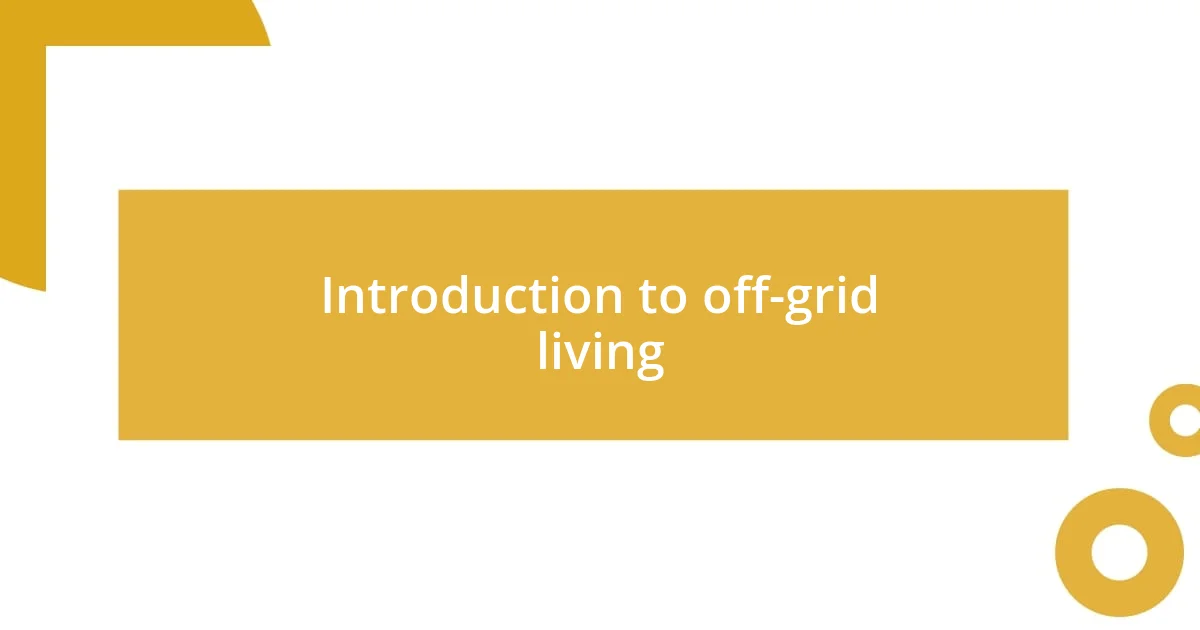
Introduction to off-grid living
Off-grid living is not just a lifestyle choice; it’s a philosophy that challenges our dependence on modern conveniences. During my month away from the grid, I found myself contemplating simple joys we often overlook. Have you ever paused to appreciate the quiet of nature or the satisfaction that comes from growing your own food?
I remember my first night in the tiny cabin I had built, with only candlelight illuminating my surroundings. It felt surreal to disconnect from the constant hum of electricity, and I was both anxious and exhilarated. The stillness was profound, allowing me to listen to the sounds of the forest—the whispering wind and distant calls of wildlife melted away my urban stress.
This experience unveiled the truth about sustainable living; it’s about self-reliance and a deeper connection to the Earth. My days were filled with new routines, from gathering rainwater to using solar panels. It raised questions I hadn’t considered before: How do we measure our impact on the environment? What does it mean to truly live in harmony with nature? These reflections enriched my experience and transformed my perspective on what it means to thrive off the grid.
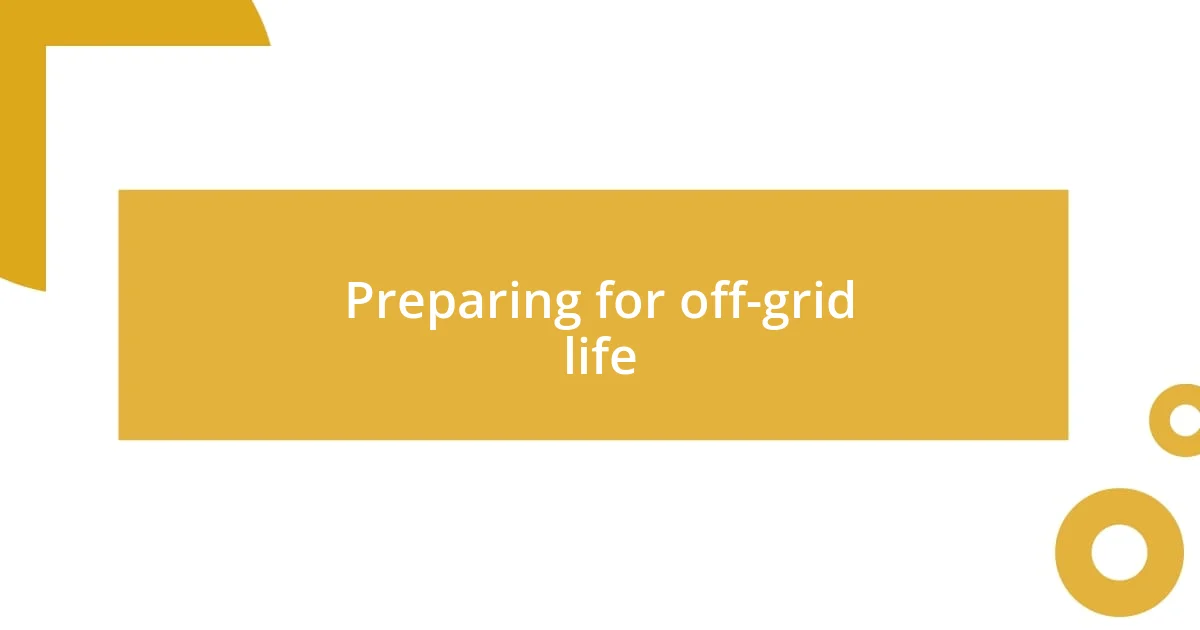
Preparing for off-grid life
Preparing for off-grid life requires more than just packing supplies; it entails planning and mental readiness. I vividly recall poring over maps and resources, envisioning my days in nature. It was essential to determine what I could go without and what tools would become my lifelines. Suddenly, the thought of trading my morning coffee for a hand-cranked grinder became both daunting and oddly exciting.
To effectively prepare, here are some crucial steps I took:
- Research your location: Understand the climate and terrain to anticipate challenges. I learned about seasonal weather patterns that shaped my daily routines.
- Gather necessary supplies: From food storage to tools for building, I made a list of essentials. I realized that simplicity would soon become my best friend.
- Create a sustainable energy plan: I invested time in learning about solar power options, which felt like a mini-science project and an embodiment of my commitment to sustainability.
- Practice self-sufficiency skills: Cooking over a fire and foraging became not just useful competencies but also thrilling adventures that fostered my independence.
- Set emotional expectations: I took time to reflect on how isolation might impact me. Acknowledging my apprehensions helped me embrace the journey with a more open heart.
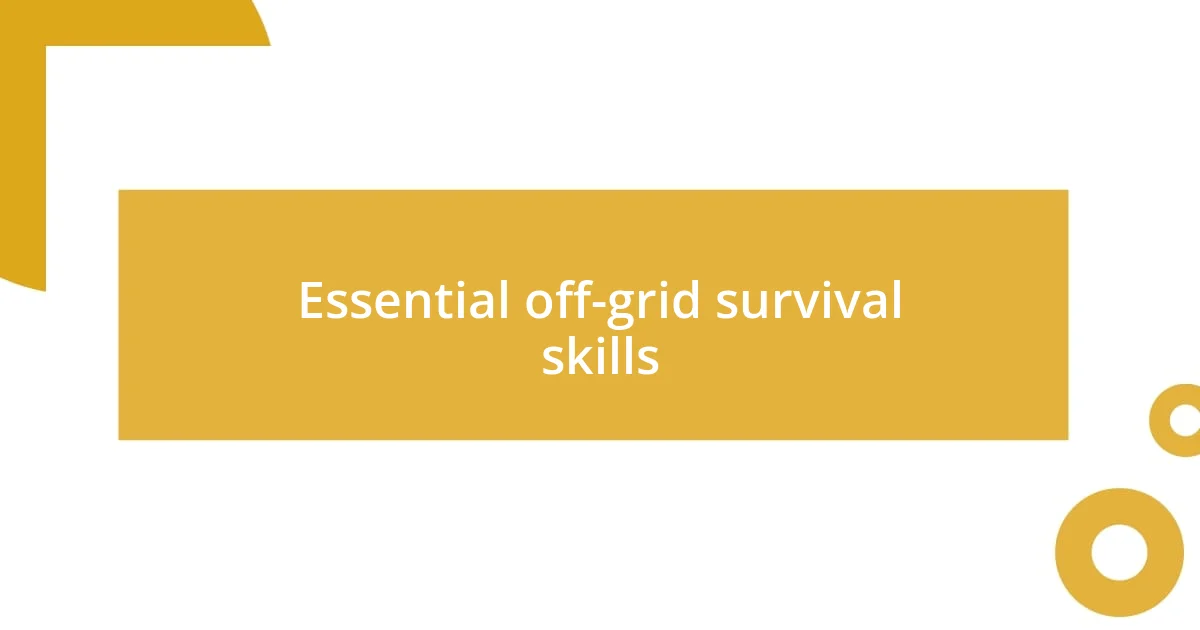
Essential off-grid survival skills
Essential off-grid survival skills are critical to making your experience both safe and rewarding. I quickly learned that fire-starting was more than just a survival skill; it became a source of comfort and warmth in the chilly nights. I remember my excitement the first time I struck a spark, creating a flame from pieces of wood and kindling. It felt like a small victory, a reminder of our ancestors’ resilience, and this was something I carried with me throughout my month.
Another essential skill is water collection and purification. It’s fascinating how something we take for granted in urban life transforms into a significant task off-grid. I used to think boiling water was just for cooking, but keeping my drinking water safe was revolutionary. The clarity that came with each sip, knowing I had sourced it myself, was rewarding beyond measure.
Lastly, mastering food preservation techniques, like drying and canning, proved invaluable. I often found myself filling jars with berries I foraged, remembering the sweet satisfaction of knowing I was preparing for rainy days ahead. There’s something magical about watching your hard work being transformed into sustenance, and that sense of accomplishment is hard to beat. Off-grid living, after all, is all about learning skills that connect you to the land and to yourself.
| Skill | Description |
|---|---|
| Fire Starting | Creating fire for warmth and cooking, essential for survival and comfort. |
| Water Collection & Purification | Gathering and making sure water is safe to drink, fostering an understanding of its value. |
| Food Preservation | Techniques like drying and canning to store food, ensuring sustenance during lean periods. |
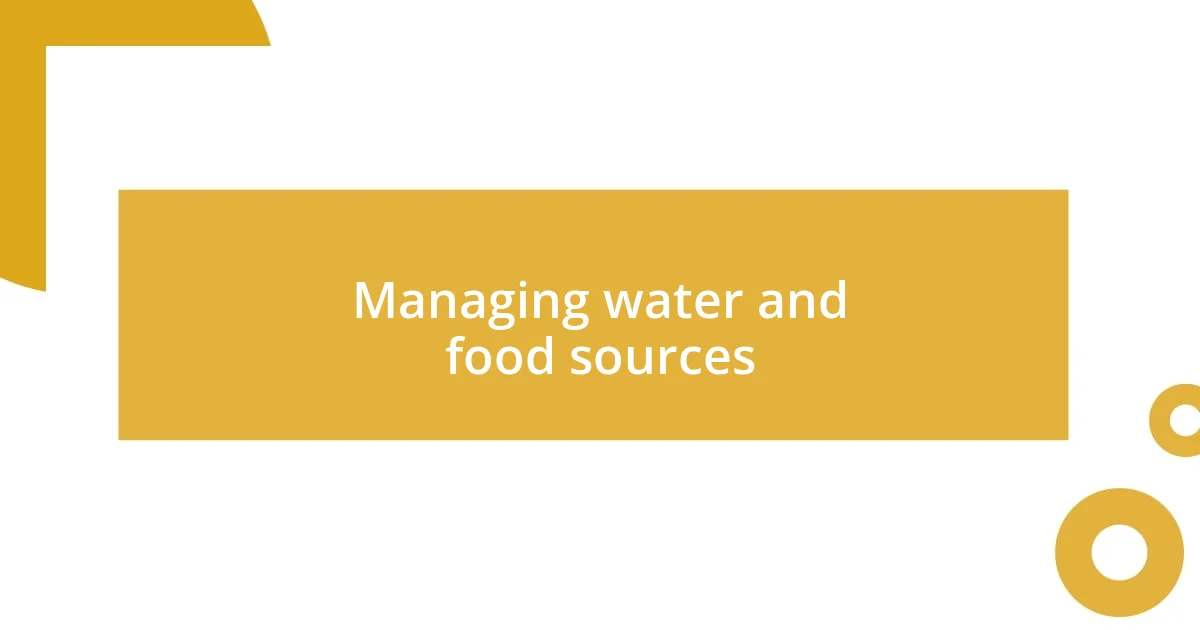
Managing water and food sources
Managing water and food sources transformed from mundane tasks into fulfilling rituals during my month off-grid. I set up a collection system for rainwater, placing barrels strategically around my shelter. There’s a sense of accomplishment the first time you see those drums fill up; it made me realize how precious every drop we often overlook really is. Can you believe a simple rain shower became a lifeline?
My food sources were a blend of foraging, gardening, and trading with fellow off-gridders. I vividly recall scavenging for wild edibles, unsure if I’d find anything but exhilarated with every small victory—like that first handful of wild blueberries. It’s funny how hunting for small treasures can spark joy. I often pondered, how could something as simple as gathering food bring such a rush of thrill and satisfaction?
Preserving food was an adventure all its own. One evening, I spent hours drying herbs I had painstakingly cultivated. The fragrance filled the air, and with each snip, I felt a growing connection to my surroundings. I still remember the pride bubbling inside me as I opened a jar a few weeks later, the aroma reminding me of my hard work and those quiet, intentional moments. Isn’t it remarkable how off-grid living encourages you to savor every aspect of food preparation, turning mundane chores into heartfelt experiences?
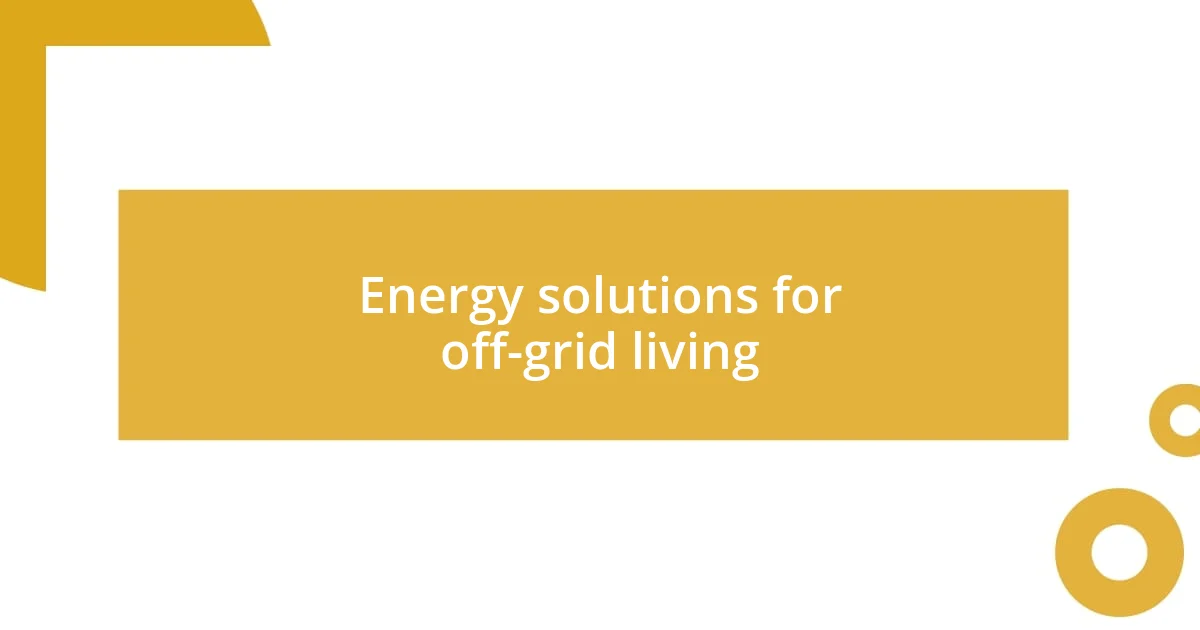
Energy solutions for off-grid living
Managing energy off-grid was quite the journey. I relied heavily on solar panels, which transformed my experience. The first time I saw my battery bank fill up from the sun’s rays felt like magic. I realized how incredibly empowering it is to harness natural elements for power. Can you imagine waking up to a fully charged battery, feeling vibrant and thrumming with energy just from a sunny morning?
Wind energy also played a role in my energy solutions. I spent a day erecting a small wind turbine, and while it wasn’t the most glamorous task, listening to it whirr as the wind picked up gave me a rush. That whirring became a soothing sound in my off-grid life. The wind was alive, working for me, and it was thrilling to know that my efforts were paying off with clean, renewable energy.
Storage options, like deep-cycle batteries, were pivotal in making everything work smoothly. Initially, I underestimated how crucial they would be. There were evenings when clouds obscured the sky, and I felt a twinge of panic about running out of power. Yet, my battery bank held firm, a silent guardian of my energy needs. It’s moments like these that make you truly appreciate the ingenuity behind off-grid living. Isn’t it fascinating how relying on nature forces us to adapt and become resourceful?
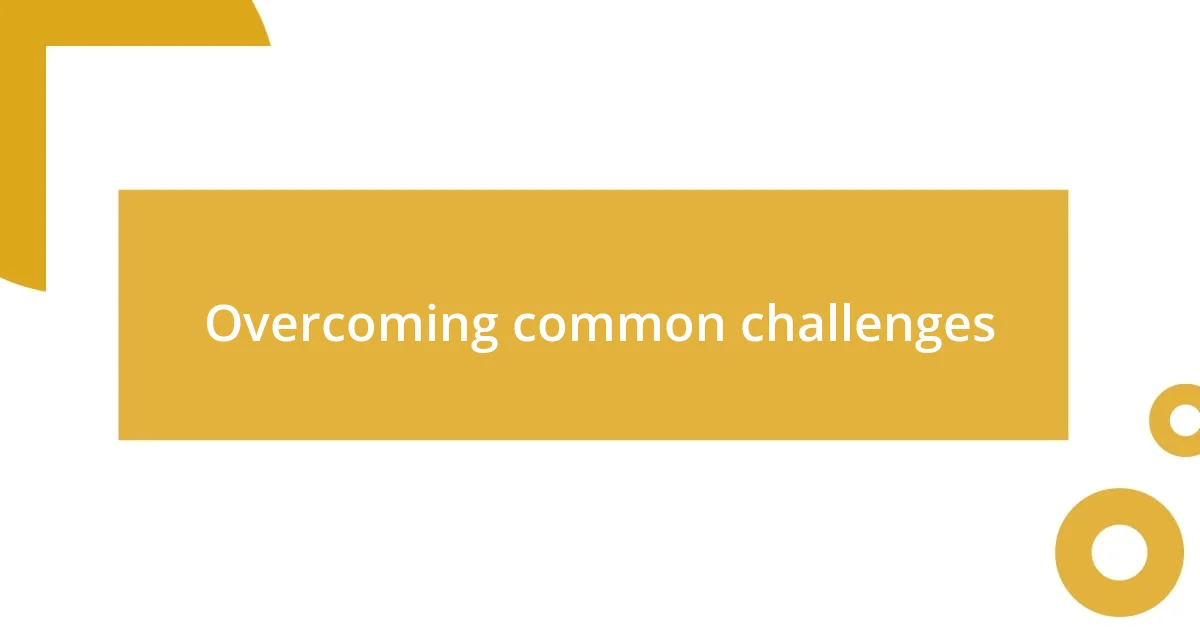
Overcoming common challenges
Finding reliable communication in an off-grid setting was more challenging than I expected. I remember one moment when I tried to send a message to a friend, only to realize that my phone had no signal. It was frustrating at first, but I found creative ways to stay connected—like setting up a signal mirror or even using an old-fashioned writing pad. Isn’t it funny how we take modern communication for granted? That experience taught me patience and reminded me of the value of face-to-face conversations.
Another hurdle I faced was managing waste without typical amenities. I was initially overwhelmed by the lack of a flushing toilet or running water. It forced me to think outside the box. I established a composting system that, while a bit stinky at times, gave me a sense of accomplishment. The more I learned about sustainable waste management, the more it felt like I was contributing to the environment. Have you ever built something so unglamorous yet felt immense pride when it worked?
Dealing with the mental aspect of isolation was perhaps the toughest challenge of all. I found myself longing for the buzz of activity I was used to in the city. But during quiet evenings, sitting by the fire and gazing at the stars, I realized how rich and rewarding solitude could be. These moments of reflection sparked a sense of connection with nature that I had never experienced. How often do we get that chance in our busy lives? Overcoming this challenge transformed my month off-grid into a journey of self-discovery.
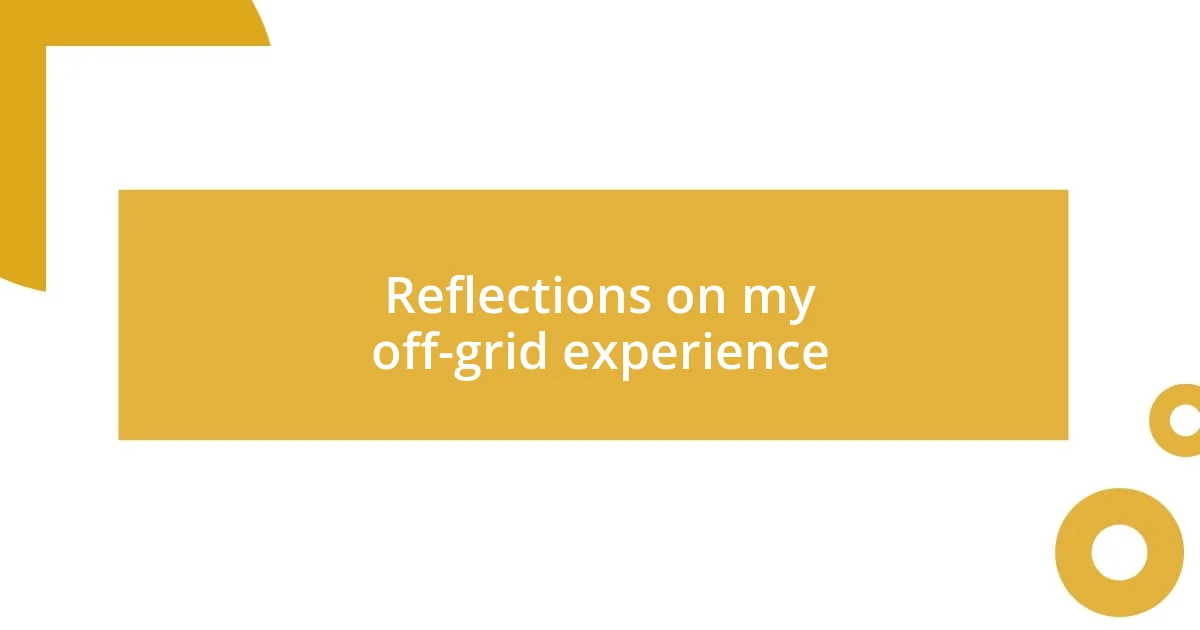
Reflections on my off-grid experience
Living off-grid gave me a unique perspective on the simplicity of life. One evening, I found myself sitting outside, the only light coming from the stars and my small campfire. It struck me just how much we often mask our surroundings with noise and distractions. In those still moments, I felt a profound connection to the world around me. Have you ever experienced such clarity when everything else falls away?
I also discovered something surprising about my own resilience. With no supermarkets or takeout options nearby, I had to get creative in the kitchen. There were days when I felt a little like a pioneer, foraging for wild herbs and trying my hand at making bread from scratch. Each meal became an adventure, and as I savored what I prepared, I felt an overwhelming sense of pride and accomplishment. Isn’t it amazing how self-sufficiency can ignite a spark of joy?
Reflecting back, the experience faced me with the duality of challenge and tranquility. Sure, there were nights when I missed my comfy bed and hot showers. Yet, when I ventured out to check on my composting system under the moonlight, I felt a strange comfort in the routine I was building. It dawned on me that discomfort pushed me to grow in ways I had never imagined. Isn’t it fascinating how the absence of convenience can lead to a wealth of self-discovery?




